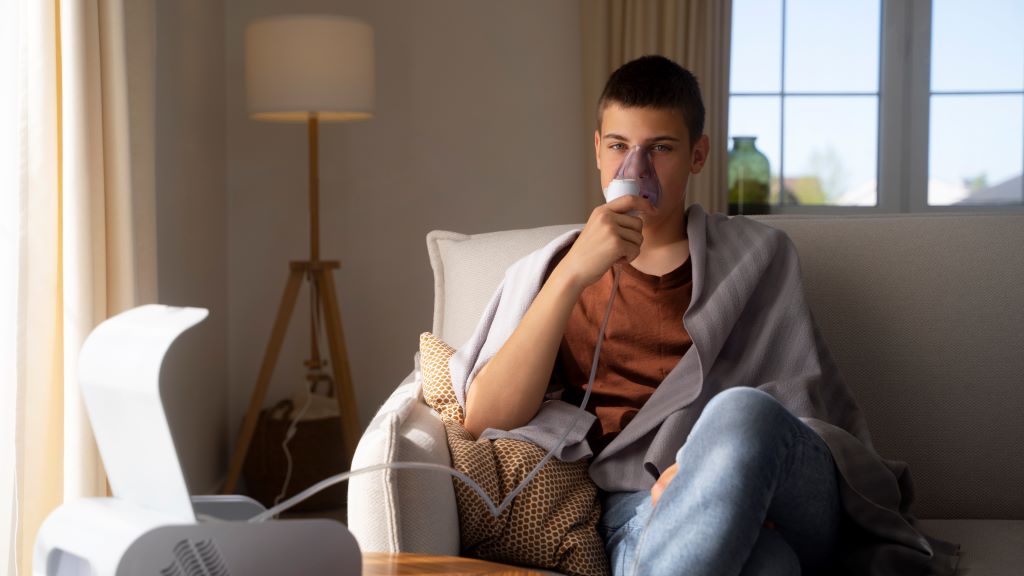Sleep apnea, a widespread sleep disorder, affects millions of individuals worldwide, characterized by intermittent pauses in breathing or shallow breaths during sleep.
Continuous Positive Airway Pressure (CPAP) therapy stands as the primary treatment for sleep apnea. It involves utilizing a CPAP machine that delivers a steady stream of air through a mask worn over the nose or mouth.
However, the conventional CPAP masks have several limitations, often causing discomfort and compliance issues among users.
In recent years, technological advancements have reshaped CPAP masks and sleep apnea management, presenting innovative solutions for improved patient outcomes and enhanced comfort.
Evolution of CPAP Masks
The evolution of CPAP masks has been marked by continuous innovation and improvement to address the challenges faced by individuals with sleep apnea.
Rental CPAP machine offer affordable and flexible access to high-quality equipment for sleep apnea treatment without the need for upfront purchase costs.
From the early days of bulky, uncomfortable designs to the present, where customization, comfort, and technology integration are key, CPAP masks have undergone a remarkable transformation.

Traditional CPAP Masks
Traditional CPAP masks generally fall into three main categories: nasal masks, nasal pillow masks, and full-face masks. These masks function by creating a seal around the nose or mouth, delivering pressurized air to keep the airway open during sleep.
Despite their effectiveness, traditional CPAP masks pose several challenges, including discomfort, air leaks, skin irritation, and difficulties in finding the perfect fit.
Innovative Designs
In recent times, manufacturers have introduced groundbreaking designs to tackle the drawbacks associated with traditional CPAP masks.
These advancements primarily focus on enhancing comfort, reducing air leaks, and optimizing the overall user experience. Notable innovations include:
1. Customizable Fit
Modern technology design a CPAP mask that incorporate adjustable features, allowing for a personalized fit tailored to each user’s preferences.
These features include adjustable headgear straps, cushion sizes, and forehead supports, enabling users to fine-tune their masks for maximum comfort and effectiveness.
2. Minimalistic Designs
Manufacturers are embracing minimalistic designs to reduce the bulkiness of CPAP masks and improve user comfort.
These masks are lightweight, compact, and less obtrusive, catering to users who may feel claustrophobic or uncomfortable with traditional mask designs.
3. Innovative Materials
Advancements in material science have paved the way for CPAP masks made from soft, flexible materials that conform to the contours of the face.
These masks are gentle on the skin and less likely to cause irritation or pressure sores, significantly enhancing overall comfort and compliance.
4. Integrated Technology
Some CPAP masks now come equipped with integrated technology, such as Bluetooth connectivity and built-in sensors.
These features enable users to monitor their sleep therapy data, adjust settings remotely, and receive real-time feedback on mask fit and usage, thereby improving convenience and compliance.

Future Trends in CPAP Mask Technology
Future trends in CPAP mask technology promise to revolutionize sleep apnea management. From customized 3D-printed masks tailored to individual facial anatomy to smart masks equipped with AI algorithms for real-time adjustments, the future holds exciting possibilities.
Biometric monitoring capabilities and enhanced comfort features will further optimize therapy adherence and patient outcomes.
1. Customized 3D-Printed Masks
A burgeoning trend in CPAP mask technology involves the utilization of 3D printing to create custom-fit masks tailored to the unique facial anatomy of each user.
By employing 3D scanning technology to capture precise facial measurements, manufacturers can design and fabricate personalized masks that provide an optimal fit and seal, enhancing comfort and treatment effectiveness.
2. Smart Masks with AI Integration
The integration of artificial intelligence (AI) into CPAP masks represents another promising avenue in sleep apnea management.
Smart masks equipped with AI algorithms can analyze sleep patterns, detect respiratory events, and dynamically adjust air pressure levels in real-time to ensure uninterrupted therapy throughout the night.
Additionally, these intelligent masks can offer personalized insights and recommendations to help users optimize their sleep quality over time.
3. Biometric Monitoring and Feedback
Future CPAP masks may incorporate biometric sensors capable of monitoring vital signs. Such as heart rate, blood oxygen levels, and respiratory rate during sleep.
By gathering real-time physiological data, these masks can provide valuable feedback to users and healthcare providers, enabling more personalized and proactive management of sleep apnea and associated comorbidities.

4. Enhanced Comfort and User Experience
Advancements in materials science and ergonomic design will continue to drive improvements in CPAP mask comfort and user experience.
Future masks may feature advanced cushioning materials, ergonomic shapes, and innovative ventilation systems to minimize pressure points, reduce skin irritation. Enhance overall comfort during sleep, thereby promoting better adherence to therapy.
Conclusion
The future of CPAP masks and sleep apnea management holds tremendous promise. As technological innovations continue to reshape the landscape of sleep medicine. With customizable designs, integrated technology, and enhanced comfort features. CPAP masks are evolving to better meet the needs of individuals living with sleep apnea. By embracing these emerging trends, healthcare providers can strive towards more effective. Patient-centric approaches to managing sleep apnea and its associated complications.



